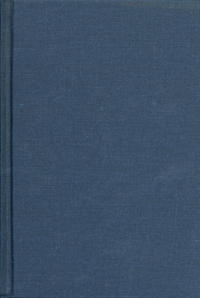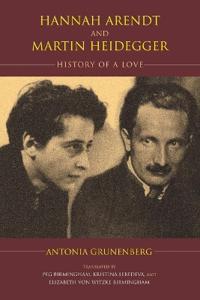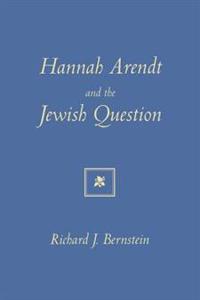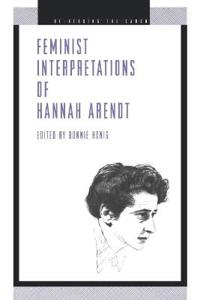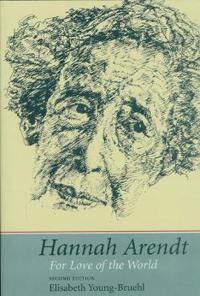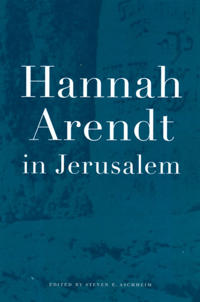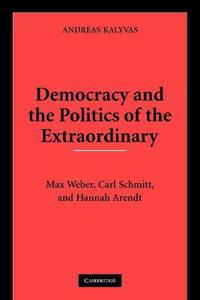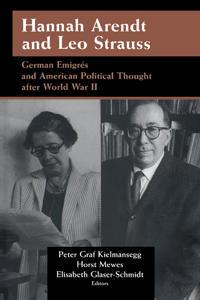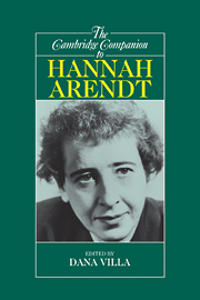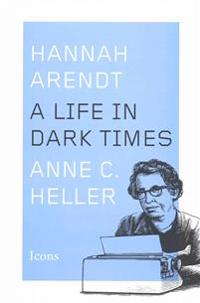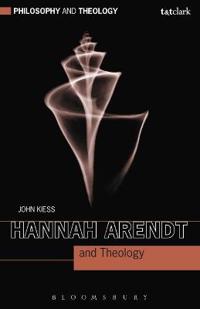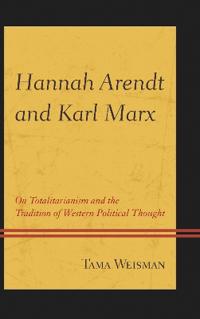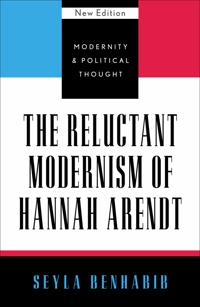Hannah Arendt and the Negro Question (Inbunden)
ISBN: 9780253011671 - UTGIVEN: 2014-06While acknowledging Hannah Arendt's keen philosophical and political insights, Kathryn T. Gines claims that there are some problematic assertions and oversights regarding Arendt's treatment of the "Negro question." Gines focuses on Arendt's reaction to the desegregation of Little Rock schools, to la[...]
Hannah Arendt and the Negro Question (Häftad)
avKathryn T. Gines
ISBN: 9780253011718 - UTGIVEN: 2014-06While acknowledging Hannah Arendt's keen philosophical and political insights, Kathryn T. Gines claims that there are some problematic assertions and oversights regarding Arendt's treatment of the "Negro question." Gines focuses on Arendt's reaction to the desegregation of Little Rock schools, to la[...]
Hannah Arendt and Martin Heidegger (häftad)
ISBN: 9780253025371 - UTGIVEN: 2017-07How could Hannah Arendt, a German Jew who fled Germany in 1931, have reconciled with Martin Heidegger, whom she knew had joined and actively participated in the Nazi Party? In this remarkable biography, Antonia Grunenberg tells how the relationship between Arendt and Heidegger embraced both love and[...]
Hannah Arendt & Human Rights
ISBN: 9780253218650 - UTGIVEN: 2006-09Hannah Arendt's most important contribution to political thought may be her well-known and often-cited notion of the "right to have rights." In this incisive and wide-ranging book, Peg Birmingham explores the theoretical and social foundations of Arendt's philosophy on human rights. Devoting special[...]
Hannah Arendt and the Jewish Question (Pocket)
avRichard J. Bernstein
ISBN: 9780262522144 - UTGIVEN: 1996-07Hannah Arendt (1906 1975) was one of the most original and interesting political thinkers of the twentieth century. In this new interpretation of her career, philosopher Richard Bernstein situates Arendt historically as an engaged Jewish intellectual and explores the range of her thinking from the[...]
Hannah Arendt
ISBN: 9780262631822 - UTGIVEN: 1997-08Hannah Arendt (1906-1975) was one of the most important political philosophers of our century. Born in Germany, Arendt studied with Martin Heidegger and Karl Jaspers. She escaped after the Nazis came to power; remained stateless until 1951, when she became a U.S. citizen; was the first woman appoint[...]
Feminist Interpretations of Hannah Arendt (Häftad)
ISBN: 9780271014470 - UTGIVEN: 1995-09Consisting almost entirely of new essays specially prepared for this volume, Feminist Interpretations of Hannah Arendt illuminates the diversity of contemporary feminisms while also generating new and suggestive readings of Hannah Arendt's political thought. The contributing authors' shared interest[...]
Hannah Arendt, Martin Heidegger (Häftad)
avElzbieta Ettinger
ISBN: 9780300072549 - UTGIVEN: 199710This book is the first to tell in detail the story of the passionate and secret love affair between two of the most prominent philosophers of the twentieth century, Hannah Arendt and Martin Heidegger. Drawing on their previously unknown correspondence, Elzbieta Ettinger describes a relationship that[...]
Hannah Arendt (Pocket)
avElisabeth Young-Bruehl
ISBN: 9780300105889 - UTGIVEN: 200410This highly acclaimed, prize-winning biography of one of the foremost political philosophers of the twentieth century is here reissued in a trade paperback edition for a new generation of readers. In a new preface the author offers an account of writings by and about Arendt that have appeared since [...]
Hannah Arendt (Storpocket)
avSimon Swift
ISBN: 9780415425865 - UTGIVEN: 2008-10Hannah Arendt's work offers a powerful critical engagement with the cultural and philosophical crises of mid-twentieth-century Europe. Her idea of the banality of evil, made famous after her report on the trial of the Nazi war criminal, Adolf Eichmann, remains controversial to this day. In the face [...]
Hannah Arendt And Educational Leadership (Inbunden)
avHelen M. Gunter
ISBN: 9780415820028 - UTGIVEN: 2013-06-13Hannah Arendt and the Challenge of Modernity (Pocket)
avSerena Parekh
ISBN: 9780415876667 - UTGIVEN: 2009-11Hannah Arendt and the Challenge of Modernity explores the theme of human rights in the work of Hannah Arendt. Parekh argues that Arendt's contribution to this debate has been largely ignored because she does not speak in the same terms as contemporary theoreticians of human rights. Beginning by exam[...]
Hannah Arendt in Jerusalem (Häftad)
avErnest Hemingway
ISBN: 9780520220577 - UTGIVEN: 200107For many years Hannah Arendt (1906-1975) has been the object of intense debate. After her bitter critiques of Zionism, which seemed to nullify her early involvement with that movement, and her extremely controversial "Eichmann in Jerusalem" (1963), Arendt became virtually a taboo figure in Israeli a[...]
Democracy and the Politics of the Extraordinary: Max Weber, Carl Schmitt, and Hannah Arendt (häftad)
ISBN: 9780521133418 - UTGIVEN: 2009-06Although the modern age is often described as the age of democratic revolutions, the subject of popular foundings has not captured the imagination of contemporary political thought. Most of the time, democratic theory and political science treat as the object of their inquiry normal politics, instit[...]
Hannah Arendt (Pocket)
avMargaret Canovan
ISBN: 9780521477734 - UTGIVEN: 1994-07Hannah Arendt is one of the most original and controversial political thinkers of the twentieth century. Margaret Canovan argues that much of the published work on Arendt has been flawed by serious misunderstandings, arising from a failure to see her work in its proper context. This reinterpretation[...]
Hannah Arendt and Leo Strauss (Pocket)
avPeter Graf (EDT) Kielmansegg, Horst (EDT) Mewes, Elisabeth (EDT) Glaser-Schmidt
ISBN: 9780521599368 - UTGIVEN: 1997-07This volume on Hannah Arendt?s and Leo Strauss? impact on American political science after 1933 contains essays presented at an international conference held at the University of Colorado at Boulder in 1991. The book explores the influence that Arendt?s and Strauss? experiences of inter-war Germany [...]
The Cambridge Companion to Hannah Arendt (Inbunden)
avDana Richard (EDT) Villa
ISBN: 9780521641982 - UTGIVEN: 2001-01Hannah Arendt was one of the foremost political thinkers of the twentieth century, and her particular interests have made her one of the most frequently cited thinkers of our time. This Companion examines the primary themes of her multi-faceted work, from her theory of totalitarianism and her contro[...]
The Cambridge Companion to Hannah Arendt (Pocket)
avDana Richard (EDT) Villa
ISBN: 9780521645713 - UTGIVEN: 2001-01Hannah Arendt was one of the foremost political thinkers of the twentieth century, and her particular interests have made her one of the most frequently cited thinkers of our time. This Companion examines the primary themes of her multi-faceted work, from her theory of totalitarianism and her contro[...]
Hannah Arendt: A Life in Dark Times
ISBN: 9780544456198 - UTGIVEN: 2015-08Hannah Arendt, one of the most gifted and provocative voices of her era, was a polarizing cultural theorist extolled by her peers as a visionary and berated by her critics as a poseur and a fraud. Born in Prussia to assimilated Jewish parents, she escaped from Hitler s Germany in 1933 and is now bes[...]
Hannah Arendt and Theology
ISBN: 9780567222275 - UTGIVEN: 2016-02Hannah Arendt is regarded as one of the most important political philosophers of the twentieth century. Famous for her account of the banality of evil, her wide-ranging work explored such themes as totalitarianism, the Holocaust, statelessness and human rights, revolutions and democratic movements, [...]
Hannah Arendt and Karl Marx (Inbunden)
avTama Weisman
ISBN: 9780739184042 - UTGIVEN: 2013-11Hannah Arendt and Karl Marx: On Totalitarianism and the Tradition of Western Political Thought is the first book to examine Hannah Arendt's unpublished writings on Marx in their totality and as the unified project Arendt originally intended. In 1952, after the publication of The Origins of Totalitar[...]
The Reluctant Modernism of Hannah Arendt (Häftad)
avSeyla Benhabib
ISBN: 9780742521513 - UTGIVEN: 200307Interpreting the work of one of the most influential thinkers of the 20th century, The Reluctant Modernism of Hannah Arendt rereads Arendt's political philosophy in light of newly gained insights into the historico-cultural background of her work. Arguing against the standard interpretation of Hanna[...]
Hannah Arendt (Pocket)
avFinn Bowring
ISBN: 9780745331416 - UTGIVEN: 2011-08-03A careful and comprehensive study introducing the ideas of Hannah Arendt to students in the social sciences.[...]
Hannah Arendt
ISBN: 9780745604886 - UTGIVEN: 1993-08The new study provides a fresh and timely reassessment of the political philosophy of Hannah Arendt. While analysing the central themes of Arendt's work, Phillip Hansen also shows that her work makes a significant contribution to contemporary debates. Specifically, Hansen argues that Arendt provides[...]
Hannah Arendt and the Jewish Question
ISBN: 9780745617077 - UTGIVEN: 1996-07Hannah Arendt is increasingly recognised as one of the most original social and political thinkers of the twentieth century. In this important book, Richard Bernstein sets out to show that many of the most significant themes in Arendta s thinking have their origins in their confrontation with the Je[...]

